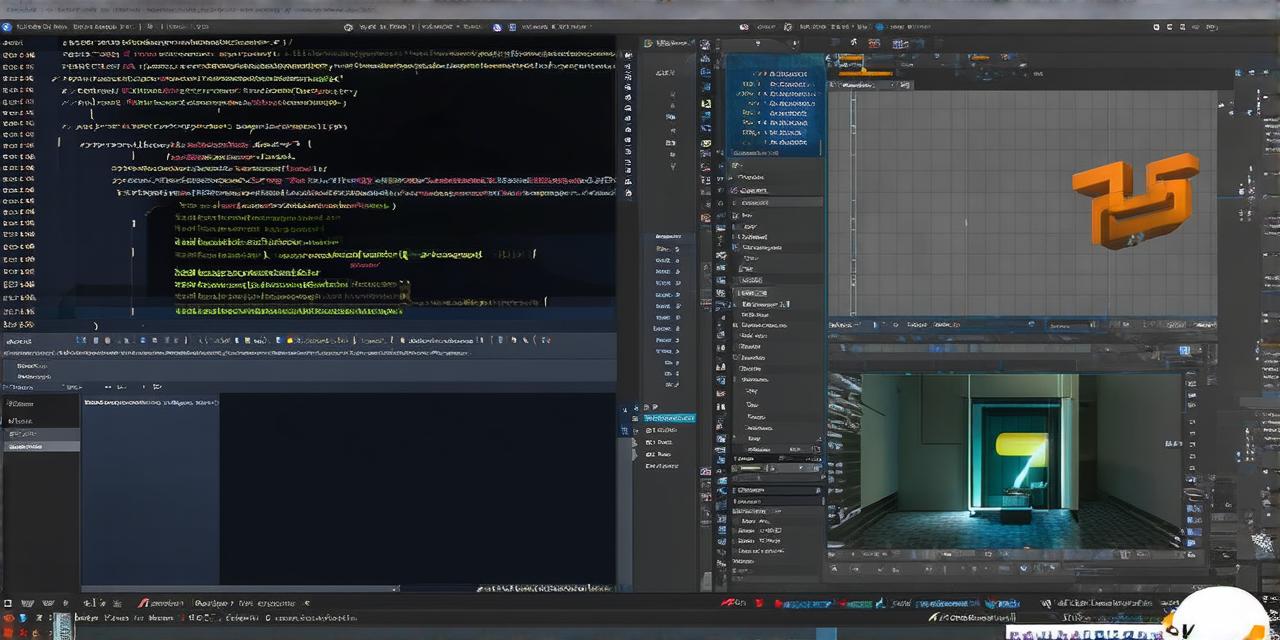What is a Unity 3D Developer?
A Unity 3D developer is a professional who specializes in creating 3D content using the Unity game engine. They are responsible for designing, developing, testing, and maintaining Unity-based games, applications and experiences for various platforms such as PC, mobile, web, console, and VR/AR.
Responsibilities of a Unity 3D Developer
Unity 3D developers have a wide range of responsibilities depending on their role within the development team. Some common responsibilities include:
- Designing game mechanics, levels and environments using Unity’s built-in tools and third-party assets.
- Writing clean and efficient code in C or JavaScript to implement game logic, AI, animation, physics and other features.
- Creating assets such as characters, objects, textures, and materials using Unity’s asset creation tools or external software.
- Optimizing the game for performance and stability by tweaking settings, reducing memory usage and minimizing loading times.
- Collaborating with other members of the development team including artists, designers, producers, and testers to ensure that the game meets quality standards and runs smoothly.
- Testing the game thoroughly on various platforms to identify and fix bugs, improve performance and ensure the game is stable and user-friendly.
- Documenting code, assets, and design decisions for future reference and to facilitate collaboration with other team members.
- Staying up-to-date with new technologies, trends and best practices in Unity development to continually improve their skills and knowledge.
Skills Required for a Unity 3D Developer
To be an effective Unity 3D developer, you need to have a combination of technical and soft skills including:
- Proficiency in C or JavaScript programming language.
- Experience with Unity’s built-in tools, third-party assets and plugins.
- Knowledge of game design principles, mechanics, and level design.
- Understanding of physics, animation, AI, and other technical concepts related to game development.
- Good problem-solving skills and the ability to troubleshoot issues that arise during development.
- Strong communication and collaboration skills to work effectively with other team members.
- Attention to detail and the ability to create high-quality assets and code that meets design standards.
- Creativity and innovation in approaching game design and development challenges.
- Familiarity with version control systems, agile development methodologies, and project management tools.
- Passion for gaming and a desire to continuously learn and improve their skills in Unity development.
Real-Life Examples of Unity 3D Developers
Let’s take a look at some real-life examples of successful Unity 3D developers and their projects:
- John Carmack, the founder of id Software and the lead developer behind the Doom and Quake game series, used Unity to create the VR version of the classic first-person shooter Wolfenstein II: The New Colossus.
- Ubisoft, the company behind popular game franchises like Assassin’s Creed and Far Cry, uses Unity for creating their mobile games and virtual reality experiences.
- Pixar Animation Studios used Unity to create the animated short film Luxo Jr., which won an Academy Award for Best Animated Short Film in 2016.
- Niantic, the company behind the wildly popular Pokémon Go game, uses Unity as the primary engine for developing and maintaining the game.
Case Studies of Unity 3D Development Projects
Here are some case studies of Unity 3D development projects that showcase the versatility and power of the engine:
- The Virtual Production Company (VPC) used Unity to create a virtual reality experience for a car manufacturer, allowing customers to customize and explore different vehicle models in a realistic 3D environment.
- The game development studio Tencent used Unity to create the massively multiplayer role-playing game (MMORPG) QQ Mobile Game, which has over 60 million users worldwide.
- The educational technology company Epic Games used Unity to create Fortnite, a free-to-play battle royale game that combines elements of first-person shooters, building games and survival games.
- The gaming studio Playdead used Unity to create the critically acclaimed platformer game Limbo, which features stunning 2D art and challenging puzzles.
Conclusion
In conclusion, a Unity 3D developer is responsible for creating 3D content using the powerful Unity game engine. They have a wide range of responsibilities including designing game mechanics, writing code, creating assets, optimizing performance, collaborating with other team members and testing the game on various platforms. To be an effective Unity 3D developer, you need to have a combination of technical and soft skills, including proficiency in programming languages, knowledge of game design principles, good communication and collaboration skills, and passion for gaming and continuous learning. With its versatility and power, Unity is a popular choice for game developers of all types, from small indie studios to large corporations like Pixar and Ubisoft.

